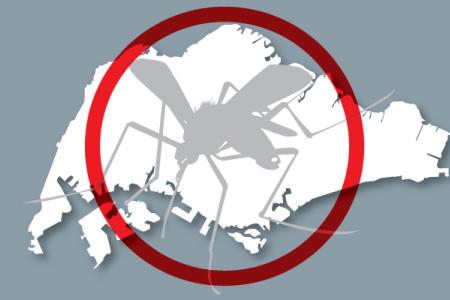Dengue outbreak worsens with record 1,158 cases last week
The number of weekly dengue infections has soared past the 1,000 mark for the first time in Singapore's history.
The 1,158 cases last week is a huge 33 per cent increase over the 870 people infected in the previous week.
The total infections for the year as at 3pm on Monday was 11,166 - more than the total for most years. Over the past 50 years, annual dengue infections have exceeded this number only six times.
The National Environment Agency (NEA) said total dengue infections for this year could set another record high, exceeding the 22,170 cases in 2013, the biggest outbreak to date.
There are 221 active dengue clusters, mostly in the eastern half of the country. The biggest is at Woodleigh in Potong Pasir, with 209 cases. Six other clusters have more than 100 people infected.
As June to October is the peak dengue season, with the hot and wet weather spurring mosquito breeding, the weekly number could continue to rise.
CLUSTER
Among the big clusters, as much as 84 per cent of mosquito breeding were found in homes, rather than at construction sites or common areas.
Dr Chia Shi Lu, head of the Government Parliamentary Committee for Health, said the situation is worrying.
"With more people staying at home and with so many enforcement officers - I personally had three enforcement checks during the two months of circuit breaker - one would expect there to be fewer unattended collections of water (that allow mosquito to breed in)," he said.
During the April-May circuit breaker months, the NEA found five times the number of breeding sites in homes, and twice the usual number at construction sites.
Twelve people have died of dengue this year.
There are four strains of dengue virus. Getting infected protects against only the strain causing the infection, and not the others.
The rise since the end of last year of the DenV-3 strain, which has not been dominant here in three decades, could have contributed to the high number of infections this year, as few people would have immunity against it. - THE STRAITS TIMES
Get The New Paper on your phone with the free TNP app. Download from the Apple App Store or Google Play Store now



